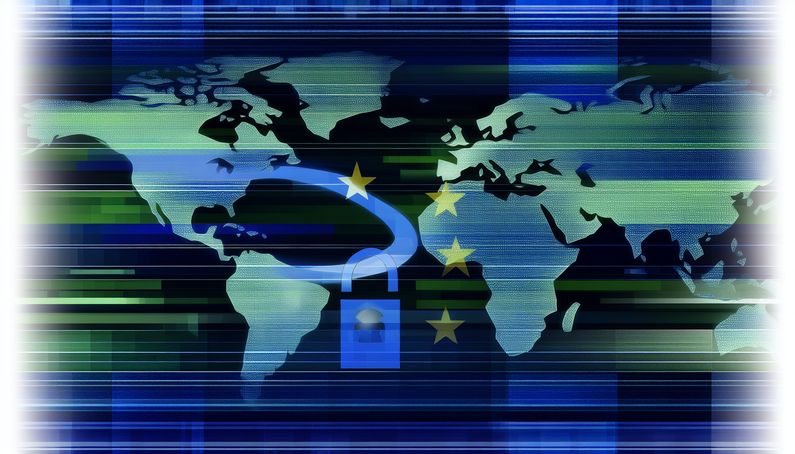
Germany's Call to Remove DeepSeek AI: A Data Privacy Dilemma
Germany’s recent request to remove DeepSeek AI from app stores highlights growing concerns about data privacy and regulatory compliance. At the center of this issue is the General Data Protection Regulation (GDPR), a strict EU law that requires strong data protection measures. DeepSeek AI, run by Hangzhou DeepSeek Artificial Intelligence, has been accused of transferring user data to China, where data protection standards differ significantly from the EU’s. This has raised alarms, especially given China’s 2017 National Intelligence Law, which allows state access to private data. The Berlin Commissioner for Data Protection, Meike Kamp, has pointed out these violations, prompting Germany to act decisively.
GDPR Violations and Data Transfer Concerns
Regulatory Framework and Legal Obligations
Germany’s request to remove DeepSeek AI from app stores is primarily driven by concerns over GDPR violations. The GDPR is a comprehensive data protection law in the European Union, which mandates strict guidelines on data collection, processing, and transfer. According to Article 46(1) of the GDPR, any personal data transferred outside the EU must be protected to a standard equivalent to that within the EU. The Berlin Commissioner for Data Protection, Meike Kamp, has highlighted that DeepSeek AI has failed to comply with these requirements, leading to the request for its removal from app stores.
Data Transfer to China and Associated Risks
The core issue with DeepSeek AI is its transfer of user data to servers located in China. This practice raises significant concerns about the protection of personal data, as Chinese data protection standards are not considered equivalent to those of the EU. China’s 2017 National Intelligence Law grants the state access to private data, exacerbating fears about the potential misuse of data collected by DeepSeek AI. This has led to a lack of trust from European regulators, who are wary of the implications for user privacy and data sovereignty.
Previous International Responses to DeepSeek AI
Germany is not the first country to raise concerns about DeepSeek AI’s data practices. Earlier in 2025, Italy banned DeepSeek from app stores, citing similar data protection issues. Italy’s decision followed DeepSeek’s failure to provide necessary documentation to regulators, prompting an investigation into its data handling practices. Similarly, South Korea has banned downloads of DeepSeek due to privacy concerns. These actions reflect a growing international trend of scrutinizing Chinese AI applications for compliance with local data protection laws.
Impact on App Stores and Technology Companies
The directive from Germany places significant pressure on technology giants like Apple and Google, who host DeepSeek AI on their app stores. These companies must now evaluate the legal and ethical implications of continuing to offer the app in Germany. The Berlin data protection commissioner has formally notified both companies, emphasizing the illegality of DeepSeek AI’s data practices under German law. This situation underscores the challenges faced by global tech companies in navigating varying regulatory landscapes and balancing innovation with compliance.
Broader Implications for AI Regulation
Germany’s action against DeepSeek AI is indicative of a broader regulatory trend concerning AI applications, particularly those developed outside the EU. The case highlights the tension between fostering technological advancement and ensuring data sovereignty. As reported by NewsTarget, the crackdown on DeepSeek underscores the geopolitical dimensions of AI regulation, where national security and data protection are increasingly intertwined. The EU’s forthcoming AI Act, which includes mandatory transparency requirements for non-EU providers, will likely further influence how AI applications are regulated across Europe.
Geopolitical Context and Future Outlook
The controversy surrounding DeepSeek AI is set against a backdrop of increasing scrutiny of Chinese technology companies. The Euro Weekly News highlights the widening trust gap between China and the EU, fueled by concerns over data security and state interference. This situation mirrors previous security concerns with companies like Huawei and TikTok, suggesting that DeepSeek AI’s challenges are part of a broader pattern of skepticism towards Chinese tech firms. As regulatory pressure mounts, it remains to be seen how DeepSeek and similar companies will adapt to the evolving landscape of global AI regulation.
Final Thoughts
The situation with DeepSeek AI highlights the growing tension between technological innovation and regulatory compliance. As Germany pushes for the app’s removal, it reflects a broader trend of scrutinizing AI applications, particularly those from China, for compliance with local data protection laws. This is not an isolated incident; Italy and South Korea have also taken similar actions against DeepSeek AI. The pressure on tech giants like Apple and Google to comply with varying international regulations is immense, highlighting the complex landscape they must navigate. As the EU prepares to implement the AI Act, which includes transparency requirements for non-EU providers, the future of AI regulation appears to be heading towards stricter oversight and increased geopolitical considerations.
References
- Bleeping Computer. (2025). Germany asks Google, Apple to remove DeepSeek AI from app stores. https://www.bleepingcomputer.com/news/security/germany-asks-google-apple-remove-deepseek-ai-from-app-stores/
- Euro Weekly News. (2025). Germany tells Apple, Google to block DeepSeek over data risks. https://euroweeklynews.com/2025/06/28/germany-tells-apple-google-to-block-deepseek-over-data-risks/
- UPI. (2025). Germany officials demand DeepSeek AI block over privacy, data concerns. https://www.upi.com/Top_News/World-News/2025/06/27/germany-officials-deepseek-ai-block-privacy-data-concerns/1401751036793/
- Bloomberg. (2025). Apple, Google told Chinese DeepSeek app is illegal in Germany. https://www.bloomberg.com/news/articles/2025-06-27/apple-google-told-chinese-deepseek-app-is-illegal-in-germany
- NewsTarget. (2025). Germany demands Apple, Google remove DeepSeek AI. https://www.newstarget.com/2025-06-29-germany-demands-apple-google-remove-deepseek-ai.html



